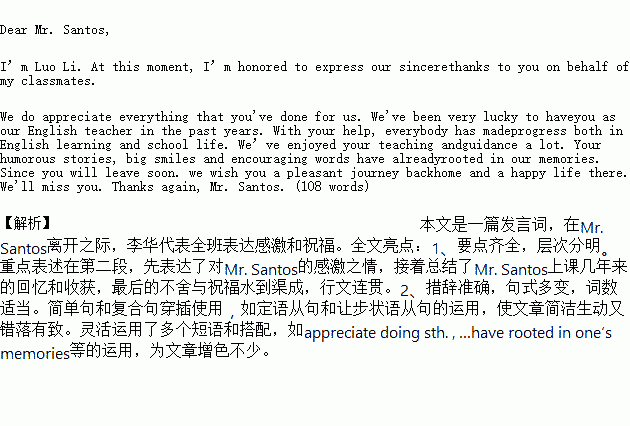题目内容
假设你是李华,外教Santos先生回国前今天最后一次给你班上课。现在,请你代表全班发言,内容包括:
1.表达感激之情;
2.回忆各种收获;
3.表不舍与祝福。
注意:
1.词数100字左右;
2.可适当增加细节,以使行文连贯。
Dear Santos,
____________________________________________________________________________________________________________________________________________________________________________________________________________________________________________________________________________________________________________________________________________________________________________________________________________________________________________________________
Yours,
Li Hua
练习册系列答案
 新题型全程检测期末冲刺100分系列答案
新题型全程检测期末冲刺100分系列答案
相关题目

